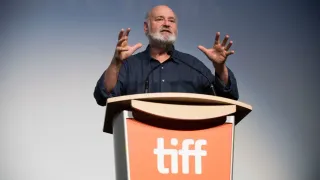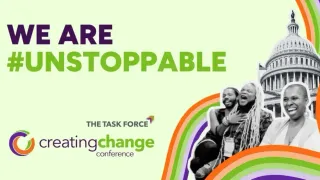March 9, 2021
Review: This Blu-ray Edition Brings Out the Best in 'The Choirboys'
Sam Cohen READ TIME: 2 MIN.
In the long, grand history of detailing destructive male brio on the big screen, the films of Robert Aldrich frequently set the golden standard. With a sturdy, workmanlike talent that made him very useful to Hollywood studios for many years, Aldrich had a knack for making your standard genre pictures that were self-effacing and epic at the same time. No matter what genre he worked in, you could rest easy knowing whatever he turned in would be reliable in its storytelling and filled with interior life.
Aldrich's 1977 film "The Choirboys," adapted from the Joseph Wambaugh novel of the same name, was derided upon release for being needlessly exploitative and not at all what the original book was. But in classic Robert Aldrich fashion, he sidestepped the novel's support of cops lashing out at the society they police and added some heart to the proceedings. The result is unwieldy and marred by a free-wheeling structure, yet it shines in the smaller moments amidst outright disgusting, vile, and depraved behavior from the boys in blue.
Kino Lorber brings "The Choirboys" to Blu-ray for the first time ever with a decent 1080p presentation. While I'm not sure where this transfer is sourced from, it looks quite good and doesn't exhibit any digital artifacts or noise that would inhibit the viewing experience. Rounding out this release are a seven-minute interview with actor Don Stroud and a new audio commentary from film historians Howard S. Berger and Nathaniel Thompson. While extras are a bit spare, this underseen Aldrich work is an interesting misfire that is more than worth your time.
New York Times critic Vincent Canby famously called "The Choirboys" "a sleazy, insidious film," and said, "There was no serious intent to it. It was an insult to me but also to every self-respecting cop in America." For those who watch it today, I have a hard time believing anyone will think the film subscribes to the degrading sexual violence that these cops deal out. In fact, Aldrich went on the record saying he was trying to put a heart into his adaptation because watching cops not being able to cope with their daily lives wasn't particularly rewarding to him. All in all, "The Choirboys" boasts incredible performances from everyone involved, and revels in the quieter moments when these broken characters briefly repair themselves and find empathy. But in classic Aldrich fashion, even that positivity is dashed in the face of reality.
"The Choirboys" is now available on Blu-ray from Kino Lorber Studio Classics.






